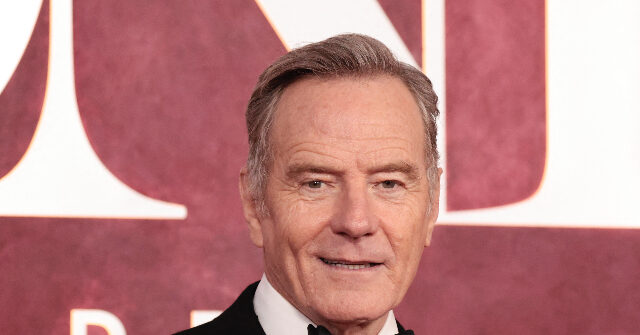Actor Bryan Cranston has led the effort to get OpenAI to agree to work closer with Hollywood union SAG-AFTRA after the company released its artificial intelligence video making software Sora 2, that raised alarm bells over theft of copyrighted material.
Immediately upon the release of the AI video maker, videos popped up using copyrighted material such as Star Wars and Pokémon. And many actors, studios, and copyright holders quickly expressed their worries that Sora 2 would make unlawful use of copyrighted material all too common.
The ease with which Sora 2 can repurpose other people’s art and images caused an uproar in Hollywood. Almost immediately, for instance, the Motion Picture Association demanded that OpenAI ban the use of copyrighted material to program Sora 2.
Many actors were also alarmed by OpenAI’s video software with many worried that their faces and voices an now be used without their permission and without compensation. Breaking Bad star Cranston was very vocal about his fears over the use of Sora 2, according to The Wrap.
“I was deeply concerned not just for myself, but for all performers whose work and identity can be misused in this way. I am grateful to OpenAI for its policy and for improving its guardrails, and hope that they and all of the companies involved in this work, respect our personal and professional right to manage replication of our voice and likeness,” Cranston explained.
“Bryan Cranston is one of countless performers whose voice and likeness are in danger of massive misappropriation by replication technology. Bryan did the right thing by communicating with his union and his professional representatives to have the matter addressed,” added SAG-AFTRA President Sean Astin. “This particular case has a positive resolution. I’m glad that OpenAI has committed to using an opt-in protocol, where all artists have the ability to choose whether they wish to participate in the exploitation of their voice and likeness using A.I.”
Sam Altman, CEO of OpenAI, felt the pressure from those concerned about the misuse of his product.
“We are hearing from a lot of rightsholders who are very excited for this new kind of ‘interactive fan fiction’ and think this new kind of engagement will accrue a lot of value to them,” Altman wrote in a blog post, “but want the ability to specify how their characters can be used (including not at all).”
Now, he has taken a step closer to putting those guardrails in place with an agreement to meet with the actor’s union.
OpenAI has announced that it plans to have one million CPUs dedicated to Sora 2 so that it can fulfill the requests by its users to generate video, but that announcement came back to haunt Altman if just a little.
The first mega viral video created by Sora 2 ended up being a fake surveillance video of Altman stealing a computer video card from a Target store. The video was a little joke aimed at Altman’s video-making software made with Altman’s own service.
AI has already had a major impact on jobs in the entertainment industry. Hollywood has reportedly lost more than 200,000 jobs to artificial intelligence — and that number is climbing. And so far, the studios have stayed awfully quiet over the matter, likely out of fear and powerlessness over the sea change.
Follow Warner Todd Huston on Facebook at: Facebook.com/Warner.Todd.Huston, Truth Social @WarnerToddHuston, or at X/Twitter @WTHuston
Read the full article here
